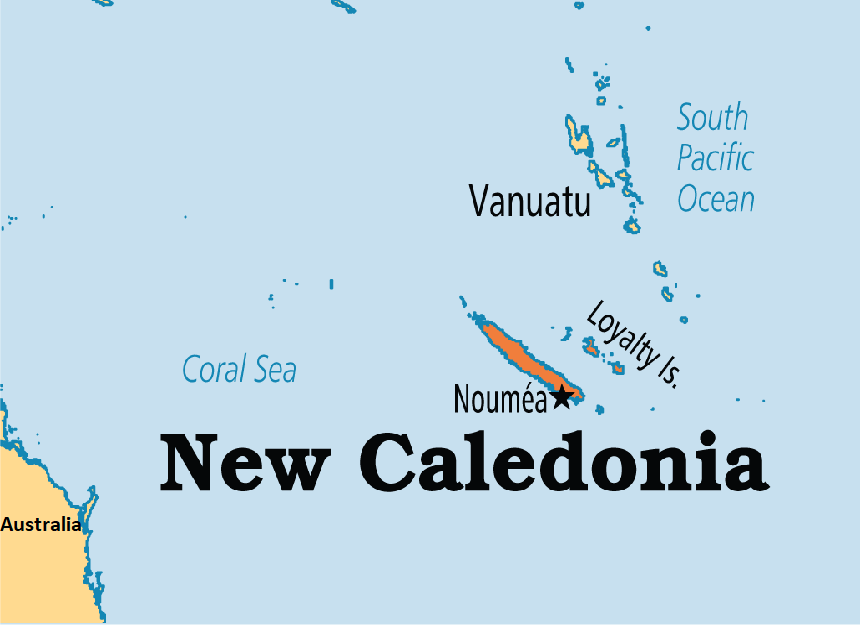Referendum in New Caledonia | 05 Oct 2020
Why in News
The French territory of New Caledonia voted against independence from France in a referendum held recently.
- The referendum was a part of a decolonisation plan agreed in 1998, known as the Noumea Accord.
Key Points
- About: New Caledonia is an archipelago and special collectivity of France located in the southwest Pacific Ocean.
- Population: The indigenous Kanaks represent around 39% of the population, while European settlers (known as Caldoches) make up about 27%.
- Most of the remainder are from other Pacific islands, which are of mixed heritage, called Caledonians.
- History:
- New Caledonia was discovered in 1774 by the British navigator James Cook.
- It was annexed by France in 1853.
- In 1946, New Caledonia became an overseas territory.
- By 1953, French citizenship had been granted to all New Caledonians, regardless of ethnicity.
- Economy: Besides having one of the region's highest average incomes per capita, New Caledonia is rich in resources and accounts for around 10% of the world's nickel reserve.
- Political Status: New Caledonia is a territory sui generis i.e. territory of its own kind.
- It is a French overseas collectivity i.e. they are first-order administrative divisions of France but have a semi-autonomous status.
- It is one of the United Nations 17 Non-Self-Governing territories - where the process of decolonisation has not been completed.
- Non-Self-Governing Territories are defined as "territories whose people have not yet attained a full measure of self-government”. It includes the Cayman Islands, British Virgin Islands, Bermuda, Western Sahara, etc.
- They vote in French elections and have French nationality.
- New Caledonia has a power-sharing executive elected by the territory's Congress, which ensures that all parties on it are represented in proportion to their number of seats in Congress.
- It depends on France for matters like defence and education.
- Conflict Over Independence: The country has had conflicts over the issue of autonomy and independence from France for a long time.
- New Caledonia has deep divisions between its indigenous Kanak population and Europeans, with indigenous Kanaks favouring independence and Europeans being against it.
- In the 1980s, the country had violent conflicts between the opponents and supporters of independence which culminated into Matignon Accords in 1988.
- The Accords specified a 10-year transitory status, after which a self-determination referendum would be held.
- The Noumea Accord, which was concluded in 1998, provided for a practically sovereign status. Under this agreement, New Caledonia is allowed up to three referendums on independence, the latest one being the last of them.
- Significance:
- At a time where Chinese influence on the island, and in the whole South Pacific region is growing, it is very significant for France to be able to retain control over the island.
- A significant portion of New Caledonia's exports goes to China, much of which is nickel.
- Though India has no official position of the referendum, the results of this referendum are particularly important for India in the double context of growing India-France relations and Indo-China conflicts. France is urging Australia and India to form a new “strategic axis” in the Indo-Pacific with it and New Caledonia to counter China’s rise.
- At a time where Chinese influence on the island, and in the whole South Pacific region is growing, it is very significant for France to be able to retain control over the island.
